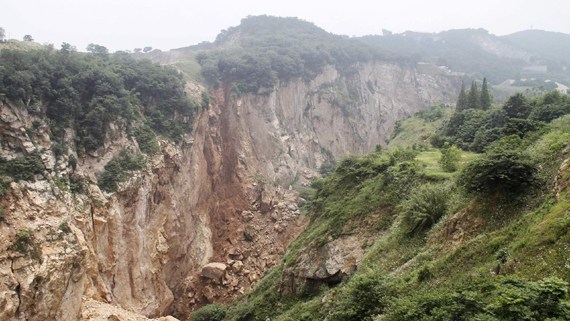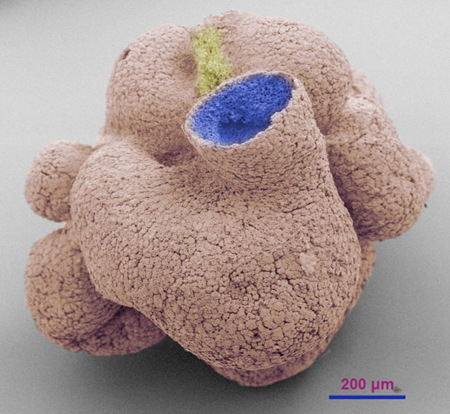

Mining in Weng'an, Guizhou Province, has destroyed a precious site for paleontology, since it's the only place to study the earliest lives on earth.
In 1998, 600 million-year-old animal fossils were uncovered at Weng'an that predated the Cambrian period, the then commonly believed earliest existence of animals on earth, by 60 million years.
However, after decades of heavy machines working and trucks transporting phosphorite, the area has been destroyed.
"The problem was grave last November, and we've reserved three valuable sites. But when we arrived here last week, one of them has already vanished. It was completely dug out," said Professor Zhu Maoyan with Nanjing Institute of Geology and Paleontology at Chinese Academy of Sciences.

Zhu continued, "the studies have not been completed yet, instead, a group of international scientists are doing researches and producing outcome right now."
"The biogroup is located right in the mining area. Several sites with the best quality minerals have already collapsed. The earth layers cannot be observed and used for researches," according to Dr. Yin Zongjun, with the Nanjing Institute of Geology and Paleontology at Chinese Academy of Sciences,
Weng'an is regarded as Asia's warehouse of phosphorite, which is important in making fertilizer for agriculture. As a result, phosphorite extraction and its related industries make up to 60 percent of local government revenue.
Experts say Weng'an does not necessarily need to pay for the great economic sacrifices, as they only want to reserve a core area in the mountains. But the existence of a number of companies, and different authorities in charge, complicate the issue.
Local government and residents did not realize the significance of protection until last week. After meetings and on-site inspection, local authorities and companies have reached a consensus with experts that Weng'an is a world-class fossil site worthy of permanent protection. It requires urgent action to make up the current destruction.
"The biogroup does not only belong to Weng'an, or China. It belongs to all human being, and requires the world's attention. It is a precious natural heritage neither replicable, nor renewable, which should not end up as bags of fertilizer," experts say. (CGTN)

86-10-68597521 (day)
86-10-68597289 (night)

52 Sanlihe Rd., Xicheng District,
Beijing, China (100864)

